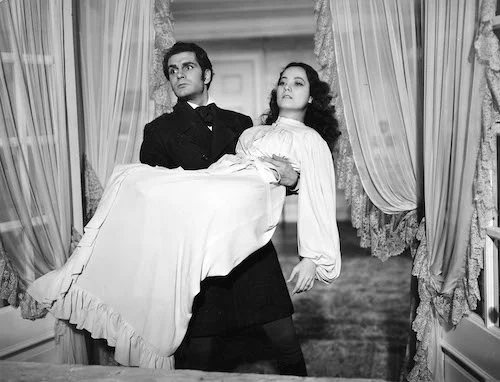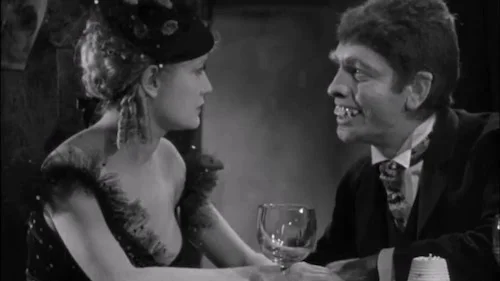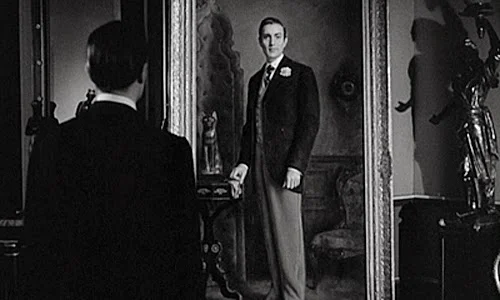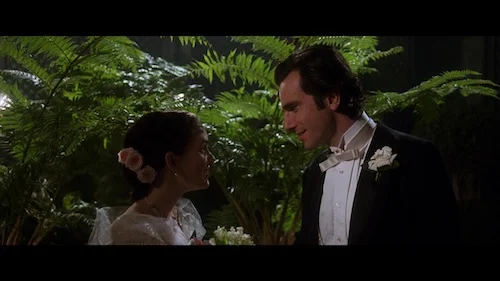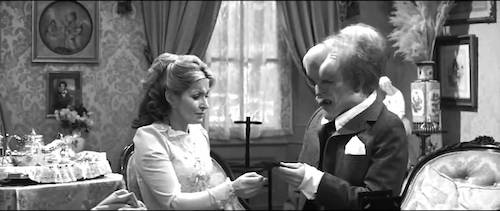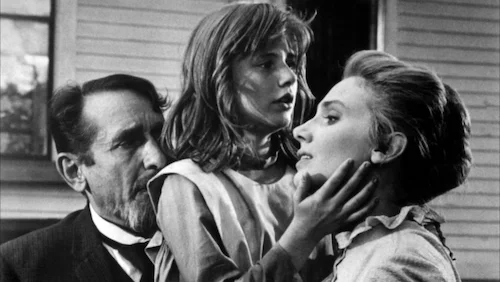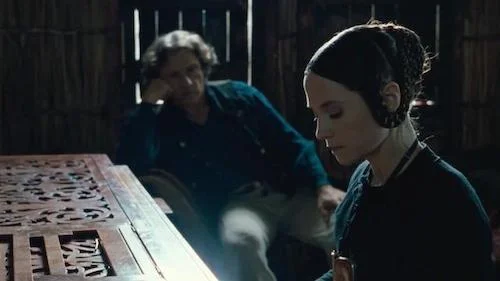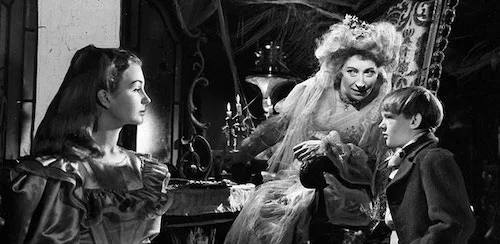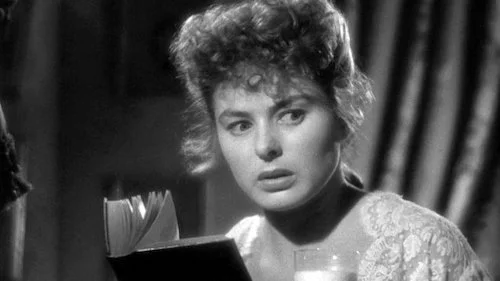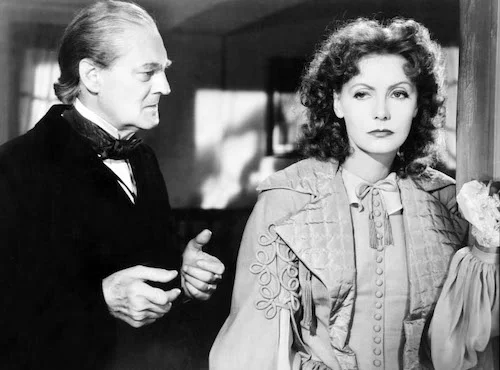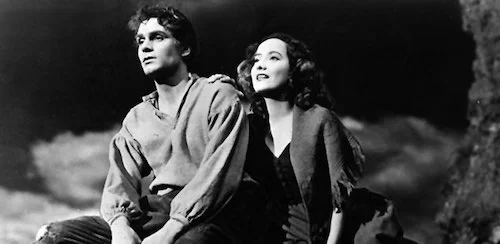Eleven Victorian Era Films To Watch For Victoria Day
To celebrate the Canadian (and worldwide) holiday of Victoria Day, we absolutely have to look at films set during the reign of Queen Victoria (also, we will be off Monday, so it makes sense to give you the long weekend to marinate on this list). Any films that take place between 1837 to 1901 qualify, so you will see a tiny bit of variety here. Why do these years matter in film (and literature, for that matter)? What makes them tick? Is it the gothic architecture? The strong female characters? The magnificent costuming? The poetic dialogue? Either way, Victorian era films are a staple in the period piece genre. Of course there are going to be some greats here. Here are eleven (ten was too hard) to check out.
11. Dr. Jekyll and Mr. Hyde
Featuring one of the top classic horror performances of all time (by Fredric March), this personality-swap tale is as old as time. What makes it extra spooky are the fancy clothes and sharp architecture (to go with all of those dark shadows). There’s just something extra creepy about seeing poshness being ripped apart by monstrosity. Maybe it’s knowing that bad is winning its fight against good?
10. The Picture of Dorian Gray
Oscar Wilde understood our fears of aging a bit too well. Albert Lewin understood Wilde’s take on life perfectly, hence why his version of The Picture of Dorian Gray reigns supreme. The sets are so dark and spooky. Having technicolor shots of the titular painting (of which looks so moldy and disgusting) is a brilliant contrast. You truly get the sense of a curse (or a blessing) at play, here.
9. The Age of Innocence
Anyone that claims that Martin Scorsese only makes great gangster (or gritty) films has no idea what they are talking about. Furthermore, they are missing out on The Age of Innocence: a nineteenth century love triangle . This is one of the great American period piece films; one whose captivations only seem to grow stronger as time goes on.
8. The Elephant Man
One of David Lynch’s more normal films, this is the tale of John Merrick (real name Joseph): a circus performer who gets examined and taken in by doctor Frederick Treeves. One of my favourite aspects is how often this film plays off of the Victorian horror films (some included on this list), thus turning Merrick’s world into one of great sympathy. Definitely one of the more imaginative biographical pictures of the ‘80s.
7. L’Histoire d’Adèle H
This great departure for François Truffaut is an entirely serious affair involving the daughter of legendary writer Victor Hugo. Adèle Hugo’s mental illnesses, as well as her adoration for a nonreciprocating lieutenant, is a performance for the ages by a young Isabelle Adjani; this role would jumpstart her brilliant career shortly thereafter.
6. The Miracle Worker
This Helen Keller story has been adapted in a number of ways. I don’t think it will ever get better than this Arthur Penn take, starring Patty Duke (as Keller) and Anne Bancroft (as teacher Anne Sullivan). I will go on and say this film is not nearly discussed enough, especially when it comes to the top notch performances, and the ability to capture the frustrations of persistence and the glory of success both at the same time.
5. The Piano
This ‘90s feminist staple showcases a woman torn between doing what she is told to do (marry an aristocrat), and what she wants to do. Even the third point of this love triangle (a plantation worker who plays by his own rules) seemingly coerces her into wanting to be with him. Most of all, this pianist wife-to-be is mute: a woman without a voice in society. Jane Campion’s courageous film tells much about a time where women were rejected their rights, and compares it to how women are portrayed in cinema still to this day.
4. Great Expectations
This is what Victorian era films are all about. First, we have David Lean’s levels of ambitions present. Secondly, we have (what is possibly) the best work by Charles Dickens adapted in the best way possible. This is the evolution of an orphaned boy into a notable figure, and the downfall afterwards. This is the rise of wealth and spirit, and the inevitability of life and death. So many forces coming together have rendered Great Expectations a classic that cannot be imitated.
3. Gaslight
One of the most claustrophobic films of all time, Gaslight is the exploitation of a loved one’s sanity for the sake of selfishness. Toss in a bravura performance by Ingrid Bergman, and you have a film that spoke to female audiences during the crux of World War II. Considered a pivotal shift in how women were portrayed in cinema, Gaslight has become a term used in modern day due to its impact.
2. Camille
One of the (apparent) themes of Victorian era films is the use of love triangles. There aren’t many that are better than the one found in the 1936 version of Camille, because urgency is a major factor. There’s the shifting of classes, manners, and riches. There’s the scare of sickness. There are changes of hearts. All of this is anchored by Greta Garbo in such a heartbreaking way. Camille resonates as one of the more emotional films during the golden years of Hollywood.
1. Wuthering Heights
We’ve had Charles Dickens, and we’ve had Oscar Wilde. Naturally, we have Emily Brontë to complete the trifecta. Chances are you had to study Wuthering Heights in English class (or you learned the ghastly tale through the gorgeous Kate Bush song of the same name). Either way, this is yet another case of a story having many adaptations. Once again, we have a resonating winner. I mean, Laurence Olivier as Heathcliff, and Merle Oberon as Cathy? You can’t get better than that. I’m going to go out on a limb and say this is the greatest film William Wyler ever made (yes, way better than Ben-Hur). This ghost tale of longing, regret, and severance is an absolute must when it comes to compiling the great Victorian era films, because it embodies all of the best qualities (performances, writing, sets, costumes, devastation and yearning) and more.
Andreas Babiolakis has a Masters degree in Film and Photography Preservation and Collections management from Ryerson University, as well as a Bachelors degree in Cinema Studies from York University. His favourite times of year are the Criterion Collection flash sales and the annual Toronto International Film Festival.

